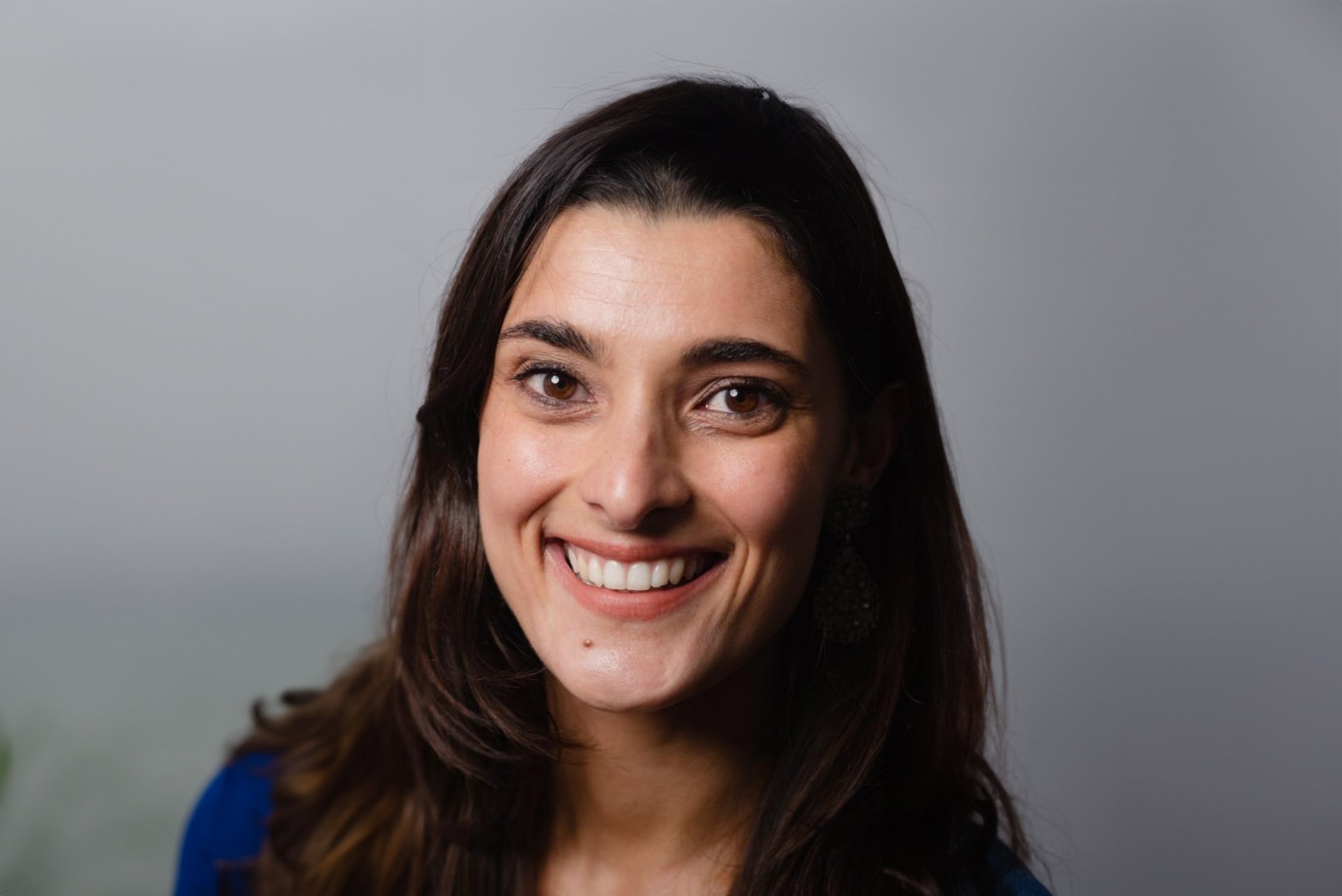
Rethinking mental health: anthropology’s radical breakthrough
SOAS World marked this year’s World Mental Health Day (10 October) by taking a look at the work of the Centre for Mental Health Research in Action (CAMHRA). We also spoke to alumna Kiara Wickremasinghe (PhD Anthropology 2025, MA Music in Development 2017), who is now Career Development Research Fellow at CAMHRA and talked about bringing her lived experience of mental health services into her research.
CAMHRA applies anthropology to transform mental health care through inclusive research, education, and approaches informed by lived experience.
It was founded by Co-Directors Professor David Mosse and Dr Nikita Simpson with a five-year grant from Research England and was launched earlier this year.
Based in the Department of Anthropology and Sociology at SOAS, CAMHRA is focused on mental health research with a mandate to be collaborative and put its research into practice. It is a hub for anthropological research, education and public engagement on mental health.
Sadly, in the UK, mental healthcare often features a wide inequality of access, experience and outcomes. Staff – while dedicated, professional and deeply caring - are often overstretched and pressured, leading to a high turnover and poorer services. There can be an over-reliance on medication, there can be exclusion and there are low recovery rates. Services also often do not meet the needs of the modern, diverse cultural world.
One of the aims of CAMHRA is to address these issues by creating new knowledge to reshape mental health systems to cater to diverse needs and to support the wellbeing and retention of staff. Taking an anthropological approach can bring nuanced, relational and cultural knowledge through inclusivity and participation.
The three strands of work for the Centre are education, research and public engagement.
Education
In education, the Centre offers postgraduate and CPD (continuing professional development) programmes, including an MRes in Social Anthropology and an MA in Medical Anthropology and Mental Health. PhD candidates carry out their research as part of the Department of Anthropology and Sociology and have the option to receive specialist training through the Centre’s partnership with Tavistock and Portman NHS Trust. There are scholarships available for study at both Master’s and PhD levels.
The Centre also hosts Postdoctoral Fellowship Programmes, including a one-year CAMHRA Career Development Research Fellowship, and a three-year CAMHRA Research Fellowship.
Continuing Professional Development is offered for mental health professionals, policy executives and others looking to broaden their understanding of mental health and ethnographic methodologies, particularly those from groups historically excluded from research, and those with lived experience of mental health services.
Research
A lot of current mental health research is dominated by psychology, psychiatry or pharmacology, but anthropology takes a different approach. By embedding expertise within mental health services, anthropologists unlock insights into the challenges facing both service users and providers. This understanding helps to inspire innovations in mental health care, leading to more inclusive and effective approaches.
“There are many reasons why anthropology is finding a place at all levels of mental healthcare. Given the discipline’s attention to social and institutional relationships, culturally-shaped experience, and its immersive research method, it is equipped to describe complex and rapidly-changing situations, voiced through stories”
– Professor David Mosse
Applying anthropological methods to mental health research allows mental health to be considered not just at the level of the individual but within the context of relationships, social structures, state systems and cultural practices.
One important aspect of CAMHRA is that many of the researchers and people involved have direct lived experience of mental health provision from different views, whether as service users or family of those seeking support, or from working in the field as professionals or volunteers. This brings many different voices and varied expertise to the Centre’s work.
Current CAMHRA research includes: APOD – an Anthropological Study of Peer-Supported Open Dialogue, which brings together people experiencing severe mental distress with families, friends, and others, placing relationships at the centre of a dialogic process for discovering ways out of crisis.
The Ecological Distress project examines emerging mental health issues related to the environment, such as eco-anxiety, ecological grief, and climate trauma and how they are shaping mental health responses across disciplines, health systems, and policy landscapes.
You cannot be serious! Silliness and community in higher education looks at how silliness might create community and counteract loneliness among students in higher education through anthropological and psychological approaches to student community.
Housing Distress explores how housing precarity, disrepair and dispossession impact mental health, and how such conditions are disproportionately experienced by racialised and migrant communities.
Understanding Hoarding Interventions examines across three cities – London, Hamburg and Vienna - how hoarding is understood in medical, psychological, social and legal terms, and where, by whom, and how hoarding cases move through the system.
Public Engagement
For public engagement, CAMHRA works with many organisations, health services and academic partners to undertake its research, along with building up a calendar of public events, seminars, lectures and conferences.
The CAMHRA in Conversation series highlights the experience and reflections of those working in the Centre and in mental health provision.
CAMHRA also has a mandate to understand and help better meet the complex mental health needs of London’s diverse populations. It has a core partnership with Thrive LDN, a public mental health partnership of London’s NHS Trusts, councils, other statutory bodies, and community groups.
“I am an anthropologist, musician and researcher with lived experience. My PhD is on the topic of a psychiatric innovation called Open Dialogue, which I first came across at the end of my time as a user of NHS mental health services.
I was ready to leave mental health services and escape to become an opera singer – my previous degrees were in geography and ethnomusicology, and I am a singer, violinist and composer. However, Open Dialogue came along and I was fascinated by the intersection between anthropology and mental health. It’s also hard to escape the ghosts of psychosis.
I had a very good care team and care coordinator, which is sadly quite rare in mental health services, and she came along with me when I first met Professor Mosse, who was setting up a piece of embedded ethnographic research. I ended up interviewing for the PhD post in his research team of anthropologists and clinicians.
I found that what I loved about anthropology was being able to bring my whole self into research. Those of us with lived experience of mental illness help bring epistemic justice when telling others’ stories – something that sociologist Arthur Frank refers to as being ‘wounded storytellers’. We are moral witnesses to both our own and others’ stories.
It is important to be seen beyond this one identity of lived experience and David has been great in encouraging me to bring other identities into my work, such as creating soundscapes to present the views of my research interlocutors. It also helps in terms of having a balanced life.
My PhD title is ‘Inside and In-between’ which reflects the different identities I bring as an embedded health practitioner, someone who has used mental health services, a musician and an anthropologist.
After my year of fieldwork, I took up a part-time role as a peer support worker, as this theme within Open Dialogue was something I wanted to follow up on. It took me into settings with service users in their recovery journeys, often in places outside of the clinic, which would then feed into their Open Dialogue treatment meetings within the clinic.
Being a peer meant I was able to relate to people in a different way than what may be expected from a professional in a clinical setting. It’s a bridge between service users and the institutional setting.
As an anthropologist, it’s tempting not to want to leave the field because of the wonderful relationships that are developed and because I experienced this work as life-changing and meaningful, making a difference on the ground. Having left the peer role after three years, I returned to the SOAS academic setting and began my anthropological write-up.
One of the benefits of CAMHRA will be more anthropologists and researchers with lived experience of mental health services, and more researchers studying mental health. Anthropology has changed me for the better. It’s changed the way I view the world and attuned me to issues around inclusion, advocacy and justice. It’s given me such a profound sense of purpose.”
Meet the researcher – Dr Kiara Wickremasinghe (PhD Anthropology 2025, MA Music in Development 2017)
To find out more about issues around CAMHRA, mental health and World Mental Health day, you can see the Centre website, watch CAMHRA in Conversation videos including the interview with Kiara, further videos on the CAMHRA YouTube channel, and by visiting the World Mental Health Day website.
Details of the postgraduate study can be found through the links above, and remember that as SOAS alumni, you are eligible for a discount on postgraduate courses.
Professor David Mosse
Doctor Nikita Simpson
Career Development Research Fellow Kiara Wickremasinghe




